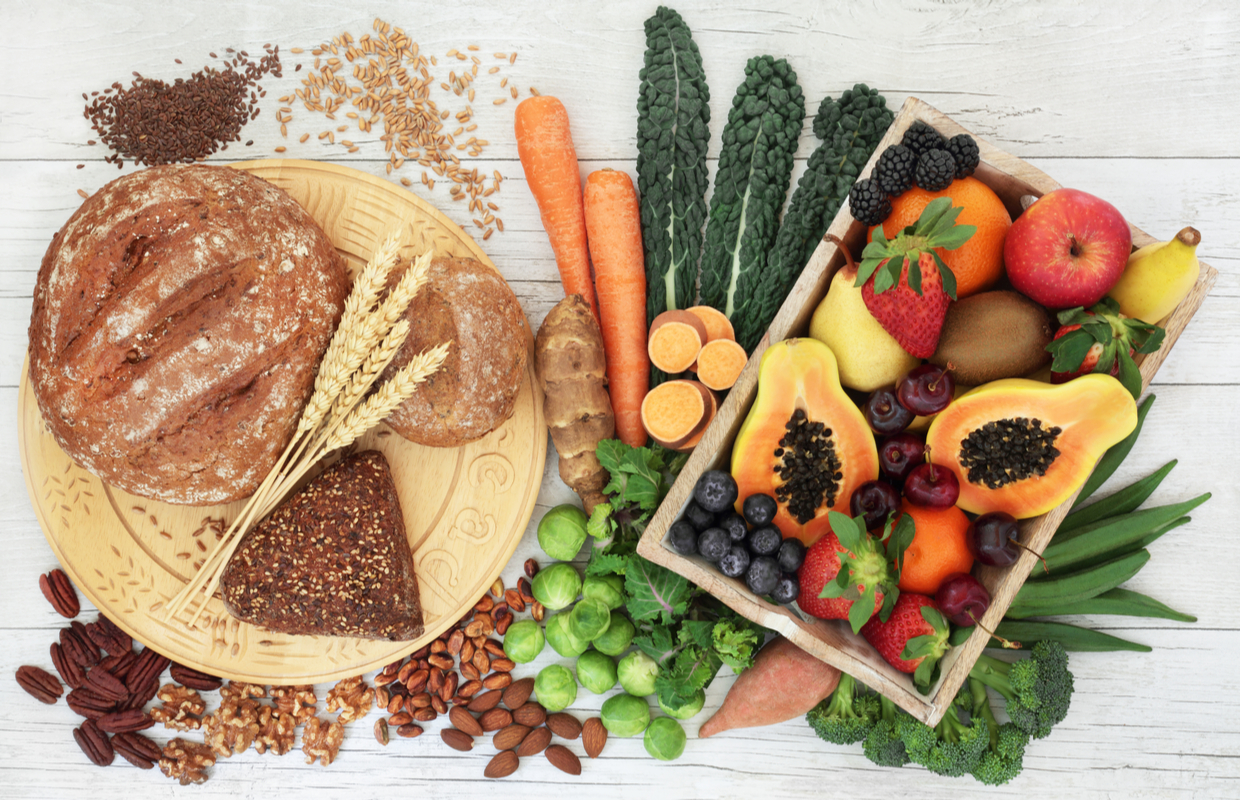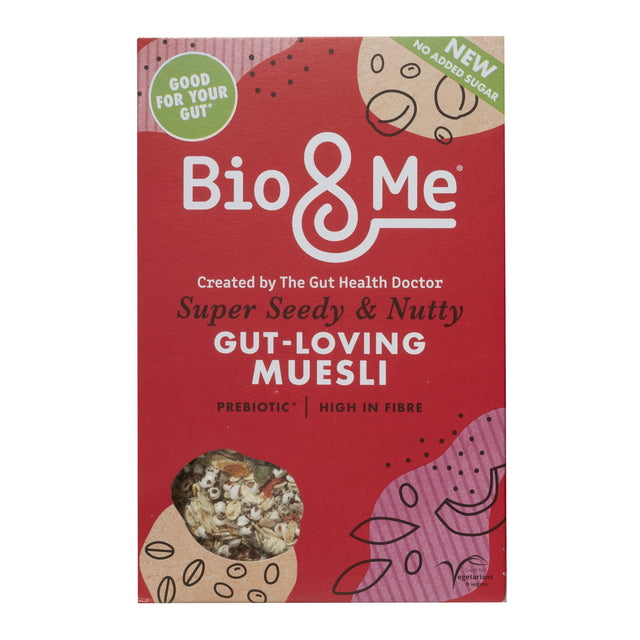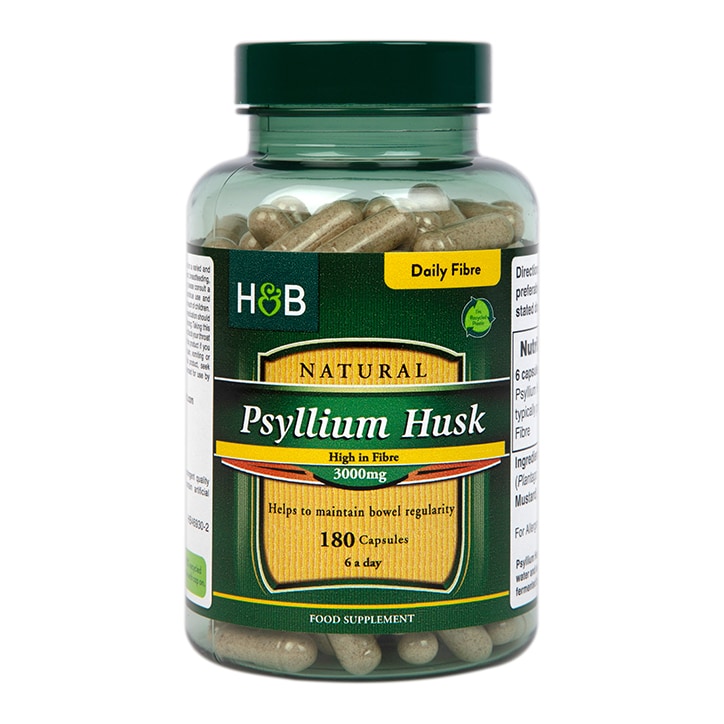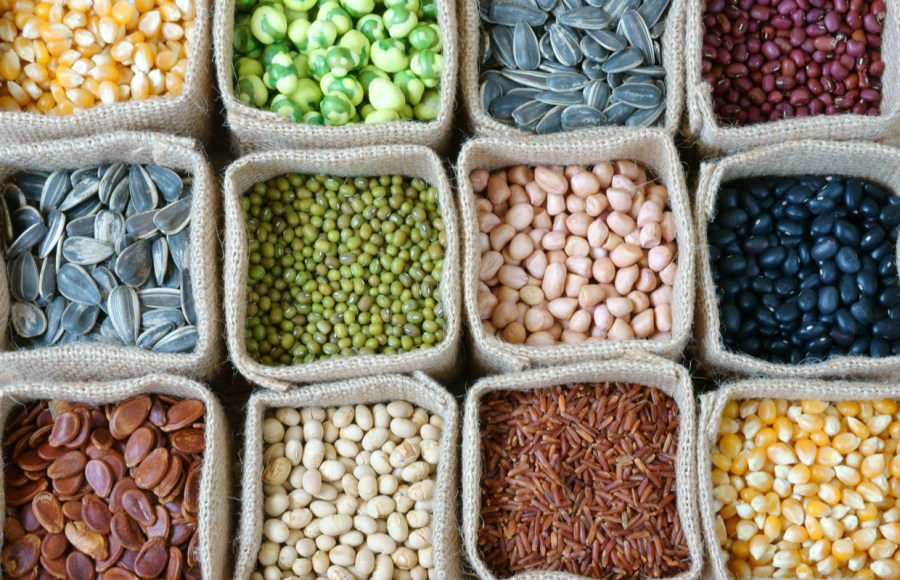It’s thought humans once consumed more than 100g of fibre a day. Now, most of us are deficient. Yet this wonder nutrient can encourage regular bowel movements and reduce the risk of many health concerns, including heart disease…
If protein is the celebrity of nutrition, basking in the limelight and selling products just by being mentioned on the label, fibre is the underdog. Yet fibre is the true star, arguably more deserving of accolades than its attention-grabbing cousin.
No-one likes to talk about bowel movements, but we can’t silence fibre’s role in getting everyone moving. Constipation is rife in UK adults and can lead to straining, haemorrhoids, varicose veins and anal fissures. If constipation is a nutrient-deficiency disease, then that nutrient is fibre because fibre regulates and improves bowel movements by adding bulk to and softening stools.
According to a National Diet and Nutrition Survey, more than 90 per cent of British adults don’t eat enough fibre. The average Brit eats around 18g a day, when they should be aiming for 30g. Leila Dehghan, nutritionist and education lead for Plant Based Health Professionals sees many clients who struggle with irregular bowel movements and sluggishness, symptoms associated with a low-fibre diet.
‘I’ve only come across vegans whose fibre intake is greater than the recommended amount,’ she says. ‘The majority of us need to up our fibre intake.’ As well as improving digestive complaints, a diet rich in fibre can help reverse Type 2 diabetes, improve heart health, reduce the risk of strokes and cancers of the colon and breast, balance the thyroid, increase energy levels and strengthen the immune system.
Is fibre good for your heart?
Many studies have shown fibre can reduce the risk of heart issues, such as cardiovascular disease. ‘It’s believed fibre prevents heart disease by lowering cholesterol levels and blood pressure, but also by helping maintain a healthy weight,’ says Leila.
‘Fibre acts as an indigestible mesh that can trap particles such as cholesterol as it leaves the body – that’s how fibre reduces cholesterol.’
One study followed the diets of hundreds of children over the course of 24 years. Those who ate a low-fibre diet displayed clear differences in arterial health by the age of 14, with the arteries already stiffening – a risk factor for stroke in later life.
Another study looked at the coronary arteries (those that feed the heart) and found that people who ate the most fibre, in the form of wholegrains, had significantly slower narrowing of their arteries.

Could fibre help you live longer?
Fibre is an extraordinary nutrient found only in plants. Whole plant foods are an abundant source, processed plant foods have less, and animal products have no fibre at all. Your complicated, beautiful digestive system depends on the microbiome living in your gut.
And while you can’t digest most fibre, your microbiome – the bacteria living in your gut – break fibre down into short-chain fatty acids (SCFAs). It’s these SCFAs that reduce inflammation, support immunity, promote weight loss, improve brain function and reduce risk of cancer. What you feed these 39 trillion micro-organisms results in your health and wellbeing – or lack of it.
‘Fibre is often referred to as a superstar nutrient and rightly so,’ Leila says. ‘Foods that are high in fibre are also loaded with antioxidants and anti-inflammatory compounds. That could explain why people who eat fibre-rich diets live longer and healthier lives. My advice is, have more fibre in your diet!’
Why you need to stay hydrated when upping your fibre intake
Increase your fibre consumption slowly and ensure you stay hydrated, too. Why not add some fruit, nuts and seeds to your breakfast? Or throw a few extra veggies and beans into your curry or bolognese? When it comes to rice, bread, flour and pasta, opt for wholemeal and wholegrain, not white.
Think of “eating the rainbow” too: enjoy an abundant mix of fruits, vegetables, wholegrains, legumes and beans in all the colours of the rainbow to reap the myriad benefits of them all. Seeds are a fibre powerhouse and easy to sprinkle into smoothies, cereal, soups or salads.
Flaxseeds and pumpkin seeds are a fantastic source of soluble fibre. Chia seeds are 40 per cent fibre by weight, whole hemp seeds are high in both soluble and insoluble fibre, and psyllium husks, made from the seeds of the plantago ovata plant, are a prebiotic soluble fibre that helps feed a healthy colony of good bacteria. Studies have shown that psyllium can improve heart health by lowering blood pressure and strengthening heart muscle.

The two types of fibre: soluble vs. insoluble
There are two main types of fibre, soluble and insoluble. ‘Soluble fibre dissolves in water while insoluble fibre does not,’ Leila explains.
‘Most plant foods contain both in varying amounts. Soluble fibre dissolves into a gel-like substance and helps reduce cholesterol and stabilise blood sugar, essential in reducing the risk for diabetes. Insoluble fibre draws water in and makes stools softer, prevents constipation and reduces the risk of developing haemorrhoids and colorectal cancer.’
It’s important to increase your intake of soluble (beans, oats, nuts, berries) and insoluble (wholegrain pasta, brown rice) fibre to maximise the benefits of diversity. And Leila warns against a low-carb diet.
‘Low-carb diets limit carb intake to less than 50g per day. Getting enough fibre on 50g of carbs per day is challenging,’ she says. ‘Most people who follow a low-carb diet are not consuming enough fibre, which is one of the many reasons I don’t promote a low-carb diet.’
5 fab fibre providers…
If eating enough fibre proves tricky, increase your intake with these…

The Gut Health Doctor has created Bio & Me Gut Loving Muesli (£3.99), which is packed with prebiotic fibres including chickpeas and linseeds. Each serving contains 2g chicory inulin, which helps increase stool frequency.

Each 6g serving of Regular Girl (from £12.99) contains 5g of prebiotic soluble fi bre and an active count of 8 billion bifidobacterium lactis (good bacteria).

The Gut Stuff Good Fibrations bars (£1.59) contain a third of your recommended daily fi bre intake. Gluten-free and vegan, they come in Peanut Butter, Cocoa & Hazelnut, Raspberry & Coconut and Apple & Cinnamon flavours. See The Gut Stuff’s recipes on p106.

When taken with water, psyllium husk can ease constipation and improve digestive health by turning into a gel that supports the collection and disposal of waste products in the digestive tract. By improving gut bacteria health, it can also help the body fight infection. Try Holland & Barrett Psyllium Husk (£13.99).

High in fibre and omega-3 fatty acids, with over five billion live bacteria, new Naturya Gut Feel Flaxseed Blend (£5) supports digestive enzyme function and contributes to balancing cholesterol. Add to porridge, smoothies and yoghurt. Available in Apple & Cinnamon, Mixed Berry, Cacao Maca, Tropical, and Unflavoured.








